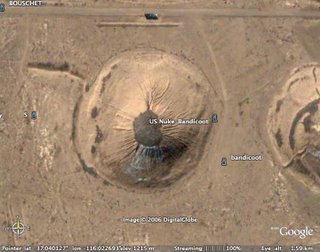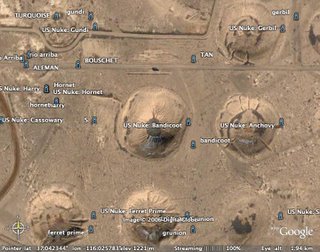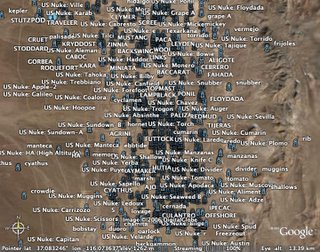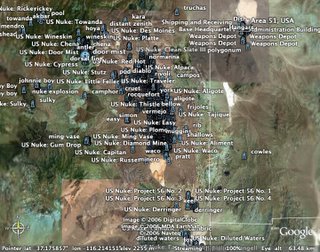Apparently, under the Harper government, there is new talk about Canada joining the American missile defence system. I believe that doing so would be unwise for a number of reasons, with the only real advantage of participation being the possibility of improved relations with the US.
Technically infeasible
The first reason to doubt the plan is that there is no reason to believe it will work. Past efforts at both theatre missile defence, the attempt to protect specific assets in a narrow geographical area, and umbrella missile defence have been failures. During the first Gulf War, the much lauded Patriot missile batteries never actually shot down a Scud – though they did shoot down two British planes by mistake. The Scud is essentially a modified V2: not exactly a modern missile.
Shooting down an ICBM is even more difficult. Lasers are infeasible given the difficulty of tracking the missile with such precision and the potential of reflective coatings and accelerated missile rotation mitigating their destructive effects. This reality is reflected in the new focus on kinetic kill systems, where a missile is meant to be used to knock the first missile apart. Of course, this risks showering the area below with radioactive fallout. Better than having a city hit, perhaps, but certainly not a good option.
There are three major stages in the flight of an intercontinental ballistic missile (ICBM) or its submarine launched equivalent (SLBM). There is a boost phase, where the missile is launched from its silo or missile tube. It is the infrared emission from the launch, as well as the appearance on radar screens, that would first alert the United States to the fact that the missile is in the air. Barring the extensive deployment of space-based weapons, it is impossible to destroy the missile at this stage. The current missile defence plans do not attempt to do so.
The midcourse stage of the missile flight is suborbital, and takes place at an altitude of 1200km. During this phase, the missile can employ a large number of possible countermeasures: electronic signal jamming; the use of decoy warheads, chaff, and flares; and the deployment of metallic balloons that interfere with radar. It would either be at this stage or during the re-entry phase – when the warhead is travelling about 4km per second or about Mach 12 – that the kinetic kill would need to take place.
Even rigged tests that have taken place so far, where the missile trajectory is known in advance, no countermeasures are used, and a beacon is actually fitted in the warhead, have not resulted in success.
Strategic error I
The supposed contemporary enemies of the United States are not ICBM type entities. Intercontinental ballistic missiles are highly sophisticated pieces of hardware. Expensive and technically demanding to produce, they also require an extensive launch infrastructure. While they seem to be increasingly within the reach of states like North Korea and Pakistan, they are definitely not available to any terrorist group.
Moreover, if the United States went to the extreme expense of building an effective missile defence system, it would remain possible to deliver a small number of nuclear weapons by other means. They could be smuggled onto fishing boats or into storage containers. Maintaining a strategic focus on stopping potential missiles with a hypothetical system only tangentially addresses the problem of nuclear proliferation.
Strategic error II
The two hostile states that do have large numbers of ICBMs are Russia and China. Russia has so many, along with SLBMs, that it needn’t be concerned about the kind of missile defence system that is being proposed. That said, it could be used as an excuse to upgrade and modernize existing nuclear forces – especially if the United States resumes the development of its own nuclear weapons, as has been proposed by this administration.
The bigger concern is China. While the exact numbers are secret, it’s probable that China has about 20 missiles capable of delivering nuclear weapons to the United States. The CIA apparently thinks that North Korea could have around five nuclear weapons. It’s hard to imagine a system that would be likely to stop five missiles, but that wouldn’t concern another state with only a small multiple of that number. Deploying missile defence might encourage China to build more missiles, begin putting missiles on submarines, begin fitting multiple independently-guided warheads upon missiles, or developing and deploying more effective countermeasures. It may, in any case, send entirely the wrong message to a state that is emerging as a larger military and industrial power.
Reasons for deployment
From the American position, there are two major reasons to deploy missile defence.
Firstly, it makes it look as though you are doing something to combat a threat almost universally regarded as very serious. This needn’t be an entirely cynical calculation. Given the incredible faith in technological progress within both the American public and the government and military, there is a belief that with enough brains and dollars, the thing can be made to work. It’s a mindset that goes along well with the notions of transformation that keep coming out of Donald Rumsfeld’s Pentagon.
Secondly, developing and building such a system will put billions of dollars into the hands of military contractors. Boeing, Lockheed-Matin, Raytheon, and the rest of them all stand to gain enormously. That has political relevance for the representatives of states where they employ a large section of the population – think of Colorado. It also has importance in a political system largely driven by multi-million dollar campaign contributions. Also, increasingly extensive direct connections exist between the military and military contractors. As such, disentangling their agendas is becoming increasingly difficult.
Potentially, some of the above could apply to Canada. If we were to join on, some contracts would doubtless flow to Canadian firms. I do not, however, think this would be a net benefit to Canada. Spending on defence industries – even if largely paid for by the United States – really doesn’t boost national welfare, at the same time as it would increase national insecurity.
The Canadian military does seem to broadly support missile defence. I can think of seven different reasons for which either the military specifically or the Canadian government generally might back the plan:
- The American armed forces are putting pressure on them to support Ballistic Missile Defence (BMD) plans. In some sense, this is almost certainly true. It’s worth remembering the extent to which things like a lack of strategic airlift capability make the Canadian Forces (CF) heavily dependent upon our allies, and especially the United States, in order to be able to deploy. We are also highly reliant upon their military intelligence capabilities.
- They are concerned that a future terrorist attack could take place through Canada. If that happened, it was seriously sour relations between the two countries, or at least risk doing so. By participating in American initiatives like missile defence, Canada could stress how we have been doing everything possible to counter terrorist threats. Support for BMD could therefore be a kind of pre-emptive damage control.
- The shared military culture of the United States and Canada means that both sets of armed forces are working from similar premises and using logic familiar to each. One issue here is that of non-proliferation. The Bush administration clearly doesn’t have much faith in treaty based mechanisms like the Non Proliferation Treaty (NPT) (a point made in the 5th report of the Senate Standing Committee on National Security and Defence). Do members of the CF see BMD as unlikely to undermine non-proliferation efforts?
- The CF sees participation in BMD as a way of maintaining or enlarging the Canadian role in North American security cooperation decision making. Given how much the Americans want to do this, we could get a lot of capital out of it for little cost. It’s worth a lot to the US just to have things look non-unilateral (think of the Iraq coalition).
- Strategic considerations are getting trumped by trade. Backing the Americans on missile defence is a way to keep trucks and containers flowing across the border with less trouble and suspicion. Also, Canadian defence firms with BMD related contracts in mind could have lobbied the CF to support the project.
- The Americans are going to set up a BMD system anyways. By participating, we at least get the illusion of sovereignty. At best, we might be able to restrain them from doing things that we really don’t want to see happen.
- The length of time this has been worked on has generated such a force of bureaucratic momentum that BMD was supported by default. Since the Second World War and, especially since the Cold War, military strategists have increasingly seen North America as a bloc to be defended all together. From that perspective, BMD might look obvious.
Admittedly, some of these are good reasons – at least potentially. Overall, however, I think the concept of dealing with the danger of proliferation by hiding behind a technical shield is profoundly misguided. It leaves the rest of NATO out in the cold, it encourages the development of further nuclear technology by states already so armed, and it contributes to a military-industrial complex that is already hugely expensive and influential.
On balance, I think Canada would be far better off for continuing to decline. While it might be a diplomatic faux pas, it may also be worth publicly pointing out why.
Tonight’s lectures on malaria, presented by the Oxford Global Health Group, demonstrated once more the kind of opportunity that is being missed with regards to global development. According to the World Health Organization (WHO), one million people per year die from the parasite. In addition, the direct economic costs imposed exceed $12B a year: a figure agreed upon by the two scientists and the representative from GlaxoSmithKline. By contrast, the WHO estimate for the cost of controlling malaria globally is just $3.2B a year. While money alone can’t solve so complex a problem, the gap between what is possible and what is being done remains unacceptable.





